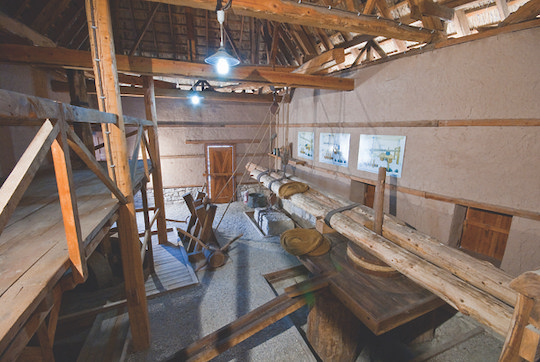Clazomene, was an ancient port city in Ancient Greece. It held a privileged position in controlling maritime traffic in and out of the gulf, as well as, the small neighboring islands. The initial human settlement dates back to the sixth millennium BC.
Archaeological excavations have found evidence of a very advanced ceramic and olive oil extraction industry, which may have even been industrialized. Remains of vessels and amphorae from their ancestral kilns have been found throughout the Mediterranean, in Greek deposits, the high seas, and the Iberian Peninsula, among others.
As for Olive Oil, what may be the first industrial mill oriented to commerce in history has been found. However, it dates from much earlier to the sixth century BC. There was an important expansion of the mill, no doubt in response to the growing demand for olive oil, one of the main products of trade in the Mediterranean Sea at the time.
In this site, the most advanced grinding systems and state-of-the-art technology were introduced for the time. They were trying to find a higher extraction efficiency that would obtain higher quality oils. Starting from here, for the first time, they had a continuous production,which makes it a pioneer for the worldwide olive oil industry.
Olive oil was of enormous importance in antiquity, being one of the mostessential products in commerce. The citizens of Clazomene knew this and took advantage of it successfully. Thanks to olive oil and together with the amphoras that they built for transport, they consolidated the first international commercial power in history. Thus, this classifies Clazomene as the first place in history to have an industrial olive oil mill that was used continually, which was commercially oriented with a packaged product.
The 6th century BC mill has been fully recuperated and restored, as you can see in the photograph shown on top.

